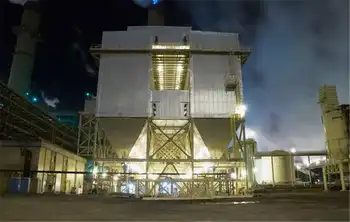Entergy proposes 23 per cent rate hike
BEAUMONT, TEXAS - Electric bills for Entergy Texas customers could increase almost $26 a month if the Public Utility Commission of Texas allows the company to recoup more of what it spends to purchase power.
Entergy Texas filed its rate case with the PUCT recently in Austin. If the request is granted, the Beaumont-based utility would receive another $198.7 million annually.
The average Entergy Texas residential bill – based on 1,000 kilowatt hours used – would climb from $111.47 a month to $137.33. That represents a 23.2 percent increase, Entergy Texas Communications Manager Dave Caplan said.
At the heart of Entergy Texas’ request is its ability to completely recover the cost of electricity it purchases from either independent power producers or Entergy Texas’ sister companies. Currently, the PUCT allows Entergy Texas to “pass along” the fuel used to generate that outside power to its 350,000 residential customers in its 27-county area.
Entergy Texas is not permitted to make a profit on that fuel.
However, Entergy Texas does pay the “capacity” cost, which is the non-fuel portion of generation expenditures – or overhead – incurred by those IPPs and charged to the Beaumont-based utility.
Absorbing that expense is hurting the utility’s bottom line, Caplan said. Entergy Texas is permitted a “return of equity” of 10 percent, but its current return rate is 6 percent, he said. Entergy Texas is seeking an 11.5 percent ROE with the state commission.
“We need to strengthen the company’s balance sheet,” Caplan said. “Six percent in this industry is not good.”
One hundred percent recovery of what Entergy Texas spends to obtain electricity from outside sources would add another $22.72 per month to consumer bills, according to an Entergy Texas chart. The non-fuel cost factor would appear as a separate rider on monthly bills, Caplan said, and would be reviewed and adjusted each year through a proposed “formula” rate.
“It (the formula rate approach) makes more sense with the availability of power on the wholesale market,” he said. “Rather than going out and building a generation plant and spending at least a half-billion dollars, we believe this is a better way of taking advantage of power at a lower cost.”
Caplan said this approach has prompted Entergy Texas to abandon its plan for expanding the Lewis Creek power plant on Lake Conroe. Cost of the project was forecast at a minimum of $550 million.
“The build option doesn’t make economic sense,” he said.
Entergy Texas’ request also calls use of the formula rate for the entire bill to avoid a base rate case, Caplan said. This would reduce – if not eliminate – expensive rate hearings in Austin, he said.
“It wouldn’t eliminate (rate challenges), but it would lower costs over time,” Caplan said. “They wouldn’t go up 20 percent but would go up and down a few percentage points.”
In addition to creation of the “purchased power” rider, Entergy Texas recommends increasing the base rate $2, from $48.94 to $50.94, and adding $1.93 a month to the customer charge. The customer charge covers metering costs and would increase to $6.50.
The most recent rate case was filed in December 2007, which resulted in an average base rate increase of about $5.
Related News

Renewables surpass coal in US energy generation for first time in 130 years
WASHINGTON - Solar, wind and other renewable sources have toppled coal in energy generation in the United States for the first time in over 130 years, with the coronavirus pandemic accelerating a decline in coal that has profound implications for the climate crisis.
Not since wood was the main source of American energy in the 19th century has a renewable resource been used more heavily than coal, but 2019 saw a historic reversal, according to US government figures.
Coal consumption fell by 15%, down for the sixth year in a row, while renewables edged up by 1%. This meant renewables surpassed coal…




